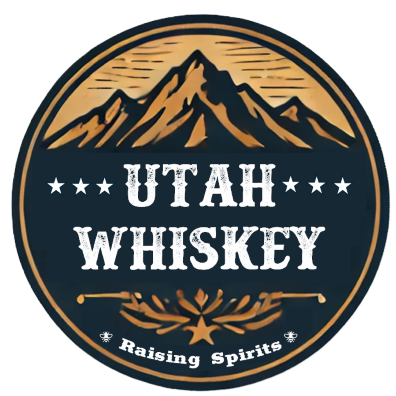Alcohol is a part of many cultures and traditions worldwide, enjoyed by people during celebrations, social gatherings, and relaxing evenings at home. However, this has not historically been the case in Utah. Utah has some of the most restrictive laws and cultural values that discourage or prohibit alcohol consumption. As a consequence, many who grow up in Utah do not learn or are not exposed to safe drinking habits. This post is a starting point for individuals who do not have much knowledge or experience with safe drinking habits.
While drinking in moderation can be a pleasurable experience, it’s crucial to understand and practice safe drinking habits to prevent the adverse effects of alcohol on health and well-being. This comprehensive guide explores the importance of safe drinking habits, practical tips for drinking responsibly, and the long-term benefits of adopting these habits.
Understanding Alcohol and Its Effects
What Is Alcohol?
Alcohol, also known as ethanol, is a psychoactive substance found in beverages like beer, wine, and spirits. It is produced through the fermentation of sugars and grains by yeast. While alcohol can provide a temporary sense of relaxation and euphoria, it can also impair cognitive and motor functions, leading to risky behaviors and health issues if consumed excessively.
Short-Term Effects of Alcohol
Impaired Judgment and Coordination: Alcohol affects the brain’s ability to make decisions and coordinate movements, increasing the risk of accidents and injuries.
Mood Alterations: While some people may feel more sociable, others may experience mood swings, aggression, or depression.
Dehydration: Alcohol is a diuretic, which can lead to dehydration and associated symptoms like headaches and dizziness.
Gastrointestinal Issues: Excessive drinking can cause nausea, vomiting, and gastritis.
Long-Term Effects of Alcohol
Liver Disease: Chronic alcohol consumption can lead to liver conditions such as fatty liver, hepatitis, and cirrhosis.
Cardiovascular Problems: Long-term drinking can increase the risk of high blood pressure, heart disease, and stroke.
Mental Health Disorders: Alcohol abuse is linked to depression, anxiety, and other mental health issues.
Addiction: Prolonged alcohol use can lead to physical and psychological dependence, making it challenging to quit.
Safe Drinking Habits
Know Your Limits
Understanding your limits is the first step toward safe drinking. Everyone’s tolerance to alcohol varies based on factors such as age, weight, gender, and genetics. It’s essential to recognize how much you can drink without impairing your judgment or coordination.
Standard Drink: Familiarize yourself with the concept of a standard drink, which contains roughly 14 grams of pure alcohol. This equates to about 1.5 ounces of spirits, 5 ounces of wine, or 12 ounces of beer.
Moderate Drinking: The CDC recommends for most adults, moderate drinking means up to one drink per day for women and up to two drinks per day for men.

Plan Ahead
Planning ahead can help you manage your alcohol intake and avoid overindulgence.
Set Limits: Decide in advance how many drinks you will have and stick to your limit.
Choose Alcohol-Free Days: Designate specific days of the week as alcohol-free to give your body a break.
Eat Before Drinking: Consuming food before or while drinking can slow the absorption of alcohol and reduce its effects.
Stay Hydrated
Alcohol can dehydrate your body, leading to hangovers and other health issues. To stay hydrated:
Drink Water: Alternate alcoholic beverages with water to maintain hydration.
Avoid Excessive Caffeine: While it may seem like a good idea to have a caffeinated drink to stay alert, caffeine can further dehydrate you.
Avoid Binge Drinking
Binge drinking, defined as consuming a large amount of alcohol in a short period, can have severe health consequences. To avoid binge drinking:
Pace Yourself: Sip your drink slowly and take breaks between drinks.
Avoid Drinking Games: Drinking games encourage rapid consumption of alcohol, increasing the risk of binge drinking.
Understand the Risks
Being aware of the risks associated with alcohol consumption can help you make informed decisions.
Know the Law: Be aware of the legal drinking age and laws regarding alcohol consumption in your area. Utah’s legal blood alcohol content (BAC) limit is 0.05%, which went into effect on December 30, 2018. This makes Utah the first state in the country to have a BAC limit lower than 0.08%. Read more here.
Avoid Drinking and Driving: Never drive under the influence of alcohol. Use public transportation, ride-sharing services, or designate a sober driver.
Be Mindful of Medications: Some medications can interact negatively with alcohol. Consult your healthcare provider if you are taking any medications.
Long-Term Benefits of Safe Drinking Habits
Adopting safe drinking habits offers numerous long-term benefits for your health and well-being.
Physical Health
Reduced Risk of Chronic Diseases: Safe drinking habits lower the risk of developing alcohol-related liver disease, cardiovascular problems, and certain types of cancer.
Better Sleep: Moderate alcohol consumption can improve sleep quality, while excessive drinking disrupts sleep patterns.
Weight Management: Alcoholic beverages are high in calories, and reducing alcohol intake can help with weight management.
Mental Health
Improved Mood: Safe drinking habits can prevent alcohol-related mood swings and mental health issues.
Reduced Anxiety and Depression: Limiting alcohol consumption can reduce the risk of anxiety and depression associated with alcohol abuse.
Better Cognitive Function: Safe drinking habits protect your brain from the long-term cognitive decline linked to excessive alcohol use.
Social and Financial Benefits
Stronger Relationships: Responsible drinking fosters healthier relationships with family, friends, and colleagues.
Enhanced Productivity: Reduced alcohol consumption can improve focus, productivity, and performance at work or school.
Financial Savings: Cutting back on alcohol can lead to significant financial savings over time.

Practical Tips for Responsible Drinking
Social Situations
Navigating social situations where alcohol is present can be challenging. Here are some tips to help you drink responsibly in social settings:
Have a Plan: Decide in advance how many drinks you will have and how you will get home safely.
Choose Alcohol-Free Activities: Suggest activities that don’t involve alcohol, such as hiking, visiting a museum, or playing sports.
Buddy System: Pair up with a friend who also wants to drink responsibly, and support each other in sticking to your limits.
Be Assertive: Don’t be afraid to say no to another drink. Politely but firmly decline offers if you have reached your limit.
At Home
Practicing safe drinking habits at home can help you maintain control over your alcohol consumption:
Set Boundaries: Keep alcohol out of sight to reduce the temptation to drink excessively.
Measure Your Drinks: Use a measuring cup or shot glass to pour standard drinks, avoiding free-pouring.
Monitor Your Drinking: Keep a journal of your alcohol consumption to track your habits and identify patterns that may need adjustment.
Handling Peer Pressure
Peer pressure can be a significant factor in excessive drinking. Here’s how to handle it:
Have a Response Ready: Prepare a response for when someone offers you a drink, such as “I’m taking it easy tonight” or “I’m the designated driver.”
Surround Yourself with Supportive People: Spend time with friends who respect your decision to drink responsibly.
Find Alternatives: Offer to bring non-alcoholic beverages to social gatherings and enjoy them alongside your friends.
Seeking Help
If you or someone you know is struggling with alcohol use, seeking help is a critical step toward recovery. There are numerous resources available to provide support and guidance:
Professional Help
Counseling and Therapy: Licensed therapists and counselors can help individuals address the underlying issues contributing to alcohol use.
Medical Treatment: Healthcare providers can offer medical treatments, such as medication and detoxification programs, to support recovery.
Support Groups: Groups like Alcoholics Anonymous (AA) provide a supportive community for individuals seeking to overcome alcohol dependence.
Self-Help Strategies
Set Goals: Establish clear, achievable goals for reducing or quitting alcohol consumption.
Stay Active: Engage in physical activities and hobbies to distract yourself from the urge to drink.
Educate Yourself: Learn about the effects of alcohol on the body and mind to reinforce your commitment to safe drinking habits.



